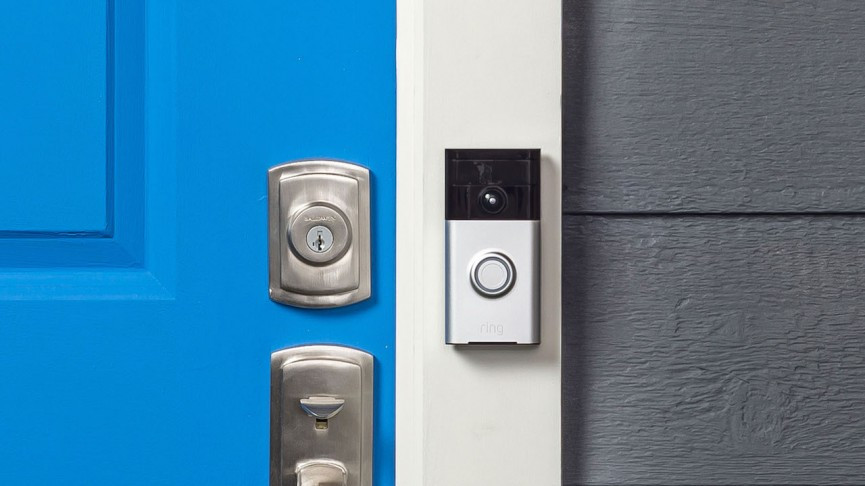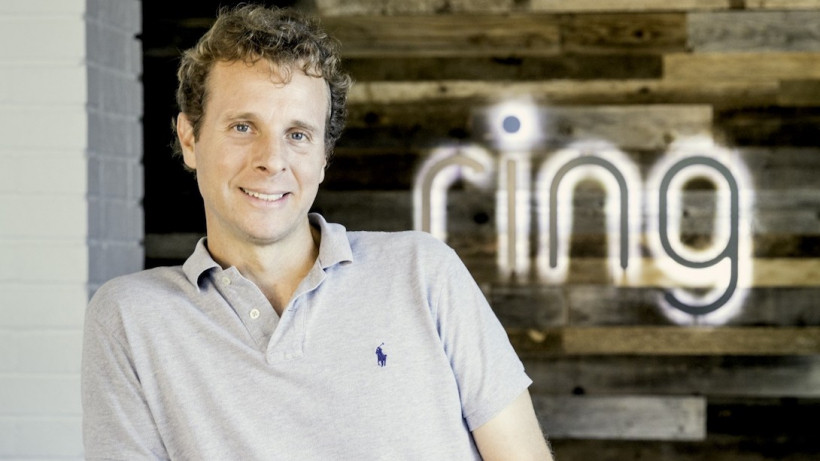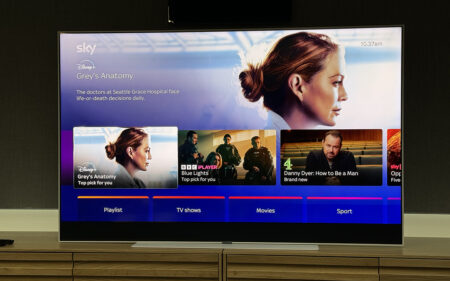Jamie Siminoff on Nest, Amazon and what's next for Ring
Back in September 2013 Jamie Siminoff was pitching his connected doorbell invention to the panel on Shark Tank. No shark took a bite of what was then called Doorbot. Fast forward less than five years and Siminoff is the CEO of the company Doorbot became… Ring – a company that is estimated to be worth over $1 billion and counts Richard Branson, Amazon, Qualcomm Ventures and Goldman Sachs amongst its investors.
“I think we’re the largest independent IoT company in the world,” he tells us. “Back in 2011 I was working in my garage on a gardening startup, trying to do something completely different and I couldn’t hear the doorbell when I was working. I wanted a doorbell that rang on my phone, so looked online but there was nothing. So, I decided to build my own Wi-Fi doorbell but I didn’t really think much of it.”
The Ambient verdict: Ring Video Doorbell 2 review
With over a million units shipped of various iterations of the Wi-Fi enabled video doorbell since Ring officially went on sale in 2014, Siminoff’s success may be somewhat accidental but his company is now a major player in the smart home arena, with a strong focus on neighbourhood security. Siminoff only ever describes Ring users as “neighbours”, never “customers”.

“Our mission is reducing crime in neighbourhoods,” he explains. “We did a study with the LAPD where we installed Ring in 10% of houses in an area and we were able to reduce crime there by 55%.”
This success comes with its own problems. When Ring started out there were a couple of other connected doorbell startups trying to make a name for themselves too – but the competition now comes from much heavier hitters. At the tail-end of last year Google-owned Nest Labs announced its own connected video doorbell – with a lot of features clearly in common with Ring. It’s a move that doesn’t sit well with Siminoff.
Having one of the largest companies in the world directly copying products you have and your message is worrisome
“It’s embarrassing for a company that spends $800 million a year to be just copying me and be behind me the whole time,” he says. “Having one of the largest companies in the world directly copying products you have and your message is worrisome but I don’t think copying is the way to build something great and they can’t copy the future, they can only copy my past.
“You always worry about competition but the reality is that we’ve always managed to beat them in the markets that we’ve shared and I think we’ll continue to do that. For how much they’ve spent and how big they are, and how big Google is – I’d say their impact has not lived up to that and so I think there’s room for us to serve neighbours.”
Siminoff also takes issue with the Works with Nest program – a program he states they don’t want to be involved in – as he doesn’t have faith in its motives.
“I don’t understand this whole Works with Nest thing when basically it appears you’re going to continue to copy whatever is successful on the market and, so far, that’s what they’ve done,” he says. “I think it’s a little bit disingenuous that you have a program that says ‘work with us, let’s be open and work together’ and then you continually copy products in that.
“There was a small, doorbell company, that went into there and tried to make that their thing and use the Nest brand to help them but they copied them. There was also an alarm product in there and Nest was very happy to have them in and then they copied them too.
It seems that the only way to be a successful Works with Nest partner is to not be successful
“I don’t blame them and it’s not a terrible business strategy. But it seems that the only way to be a successful Works with Nest partner is to not be successful. We stayed out of it on purpose. I’d rather fail on delivering to my customers than building my business and have it stolen by my partner.”
Siminoff doesn’t just have strong words for his rivals over at Nest. He’s not all that keen on Amazon’s Key service either, which lets couriers unlock your front door.
“Amazon is both an investor in Ring as well as a strong partner, so we have a lot of respect there but, in this instance with what they’ve done, I was never a fan of how this was put together,” he explains. “I don’t believe the seal around the home should ever be breached by a third-party company. No matter how many cameras you have and how much control you have over it, I just don’t think it’s a good idea.
“To me it’s backwards because Amazon is usually so thoughtful around scale and when you’re doing like 50 million interactions a day, even if the smallest percentage – like 0.0001% goes wrong – that could be like five deaths a day!”
Siminoff thinks it could be done better and, in fact, something similar is on the Ring roadmap. “We have a lot of ideas around how to do it differently,” he says. “Long term, the way we’re looking at things is a better fit for consumers and for companies themselves.”
That roadmap may not be as full of product launches as the last couple of years has been though. Siminoff explains that the focus is more on improvements for the existing Ring range.
“In 2018, we will start to do a lot more with integrations and deliver a lot more to our customers,” he explains. “What you saw from us in 2017 was a ton of products and you’ll definitely see some new stuff in 2018 that is exciting, and inventive and new and different in how it works. But we’re not so much in a race to broaden up our products now as much as we are trying to get software and the cloud stuff give more value to our neighbours.
“What you’ll see is a lot of iteration on our existing lines, continuing to upgrade them and make them better, and then a lot of software and cloud based things that can truly make our solution a lot more effective in neighbourhoods.”

One product that should hit the shelves this year is Ring Protect (above), a $199 smart home security system which is made up of a base station, keypad, motion detector and a single door/window sensor. In November, Ring saw its Protect sales halted by a Delaware judge as part of a lawsuit involving Ring and security company ADT. ADT alleges that Ring misused proprietary information that it received when it acquired IOT platform provider Zonoff.
As with his thoughts on Nest, Siminoff views himself very much as the underdog up against bigger, slower, less forward-thinking tech companies working in the smart home space. “What makes me the most upset,” he says, of the ADT & Ring Protect case, “is being kicked in the face for doing something that was good for everyone just because someone bigger wants to hold back innovation. We’ll make sure that we still get it out.”
“I’m working through it,” Siminoff tells us. “I’m okay with having setbacks and trying to get through them but the one thing I don’t like about this one is that contractually, and as a human, I did all the right things. I saved the company that had just fired 80 jobs. I did everything with the best of intentions.”
Jamie’s comments were from an interview that took place in late November 2017.





